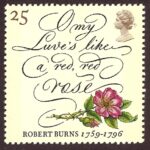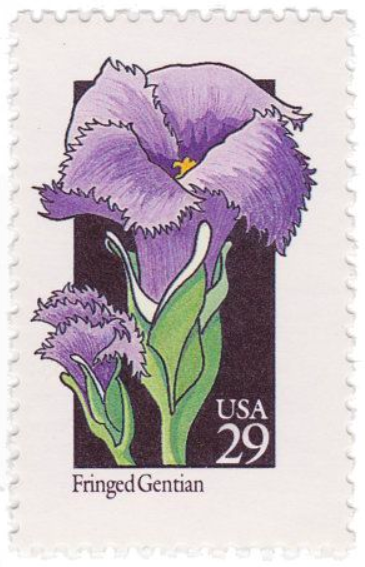![[Autumn Leaves]]](https://riverhouses.org/wp-content/uploads/2023/09/emoji-blowing-leaves-wind-150x150.png) The Chimney Swifts are gone. (That’s how it is in my neighborhood.) The Nighthawks and the Kingbirds too. Did you notice? In the spring when new birds arrive their voices strike your ear like a fresh spark. But when they depart — have they departed? — most of them slip away silently in the night.
The Chimney Swifts are gone. (That’s how it is in my neighborhood.) The Nighthawks and the Kingbirds too. Did you notice? In the spring when new birds arrive their voices strike your ear like a fresh spark. But when they depart — have they departed? — most of them slip away silently in the night.
As we pass today’s equinox and enter into astronomical autumn, the great American poet Emily Dickinson (1830–1886) provides us with a wistful homeschool poem-of-the-week for the last week of September and for summer’s end.
As imperceptibly as Grief
The Summer lapsed away —
Too imperceptible at last
To seem like Perfidy —A Quietness distilled
As Twilight long begun,
Or Nature spending with herself
Sequestered Afternoon —The Dusk drew earlier in —
The Morning foreign shone —
A courteous, yet harrowing Grace,
As Guest, that would be gone —And thus, without a Wing
Or service of a Keel
Our Summer made her light escape
Into the Beautiful.
If your students are learning how to read poetry — and poetry requires a special kind of reading, different from prose reading — tell them not to go too quickly or to expect everything to be clear on the first pass through. Getting to know a poem is like getting to know a person: some things are apparent on the surface, but there are new things to discover over time with repeated engagement (and with expanded life experience). If you make the effort, however, you’ll often discover that good poems, like good people, can become friends for life.
![[Emily Dickinson Homestead]](https://riverhouses.org/wp-content/uploads/2017/12/dickinson-homestead.jpg)
For traditionally styled poems like this one, the first thing to do as you make the poem’s acquaintance is not to think about meaning or abstract symbolism; instead, just count syllables. As imperceptibly as Grief (eight). The Summer lapsed away (six). Too imperceptible at last (eight). To seem like Perfidy (six). 8-6-8-6. The other three stanzas are shortened versions of that pattern: 6-6-8-6.
“Eights-and-sixes” is one of the most common hymn meters in the Protestant tradition — so common, in fact, that it’s often referred to as just “common meter” or “C.M.” — and Emily Dickinson learned her very precise prosody from the church hymns she grew up with. Compare the rhythm of the first stanza above with this familiar verse:
Amazing grace! How sweet the sound
That saved a wretch like me!
I once was lost, but now am found;
Was blind, but now I see.
A perfect match: 8-6-8-6. Whenever you encounter Emily Dickinson in your homeschool reading — and I hope that will be often — start by counting syllables and you’ll gain a new appreciation for the details of her craft.
So this is a metrically precise poem — but does it rhyme? Well, yes, but not perfectly. Emily Dickinson was almost completely unknown as a writer during her lifetime, and one reason for that was her frequent use of imperfect or “slant” rhyme (as opposed to perfect or exact rhyme), which made her verse sound too irregular to her contemporaries. In exact rhyme, the consonant and vowel sounds both match: sing/ring, time/chime, fray/stay. In this week’s poem, Dickinson does consistently rhyme the second and fourth lines in each stanza, but the rhymes are imperfect, depending usually on just a single consonant, and the vowel sounds don’t quite correspond: away/perfidy, begun/afternoon, shone/gone, keel/beautiful. (It’s possible to read shone/gone as a perfect rhyme, depending on how one pronounces shone.) Imperfect rhyme often creates a prose-y feel, and to Dickinson’s contemporaries that was unpleasant. To our modern ears, however, this “irregularity” strikes us as linguistically more natural and less contrived, and so more in alignment with present-day aesthetic sensibilities.
There’s some wonderful vocabulary you can have your students look up this week in your family dictionary as they try to work out the poem’s meaning: imperceptibly, perfidy, distilled, sequestered, harrowing, keel, and lapsed. Send your students to the dictionary also for any poetical terminology they encounter this week and throughout the year in our literary explorations: stanza, couplet, quatrain, sonnet, pentameter, hexameter, iambic, dactylic, and more — wonderful words, every one!
What other literary delights and poetical productions will you and your students be examining in your homeschool this Cygnus Term? 😊
❡ Pages to color: Did you know that the Emily Dickinson Museum in ED’s home town of Amherst, Massachusetts, has free printable coloring pages available for you and your students? It’s true! 🖍
❡ This is a printable lesson: Down at the bottom of this post you’ll find a custom “Print” button that will let you create a neat and easy-to-read copy of this little lesson, and it will even let you resize or delete elements that you may not want or need (such as images or footnotes). Give it a try today! 🖨
❡ Our summer made her light escape: If a special line or turn of phrase happens to strike you in one of our weekly poems, just copy it onto your homeschool bulletin board for a few days and invite your students to speak it aloud — that’s all it takes to begin a new poetical friendship and learn a few lovely words that will stay with you for life. 🍃
❡ Literary lives: The website of the Poetry Foundation includes biographical notes and examples of the work of many important poets (including Emily Dickinson) that are suitable for high school students and homeschool teachers. 🖋
❡ Here, said the year: This post is one of our regular homeschool poems-of-the-week. Print your own River Houses Poetry Calendar to follow along with us as we visit fifty of our favorite friends over the course of the year, and add your name to our River Houses mailing list to get posts like these delivered right to your mailbox every week. 📫
❡ Homeschool calendars: We have a whole collection of free, printable, educational homeschool calendars and planners available on our main River Houses calendar page. They will help you create a light and easy structure for your homeschool year. Give them a try today! 🗓
❡ Support our work: If you enjoy our educational materials, please support us by starting your regular Amazon shopping from our very own homeschool teaching supplies page. When you click through from our page, any purchase you make earns us a small commission at no extra cost to you. Thank you for helping us to keep going and growing! 🛒
❡ Join us! The aim of the River Houses project is to create a network of friendly local homeschool support groups — local chapters that we call “Houses.” Our first at-large chapter, Headwaters House, is now forming and is open to homeschoolers everywhere. Find out how to become one of our founding members on the Headwaters House membership page. 🏡




